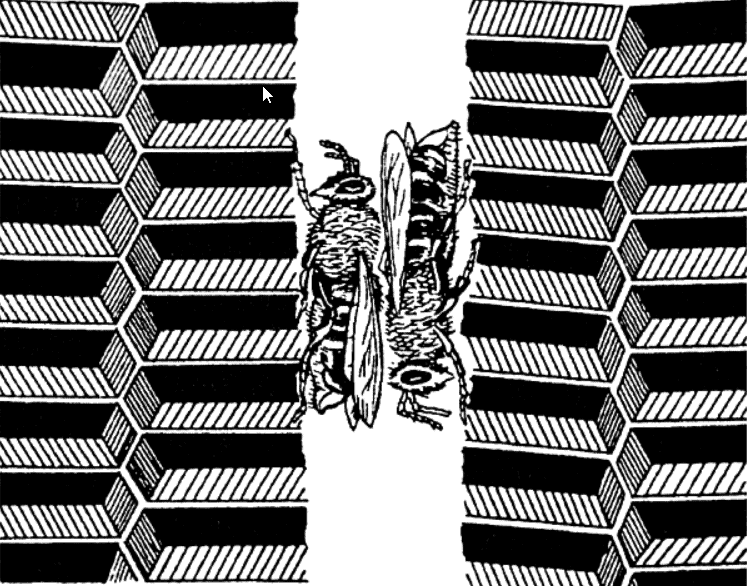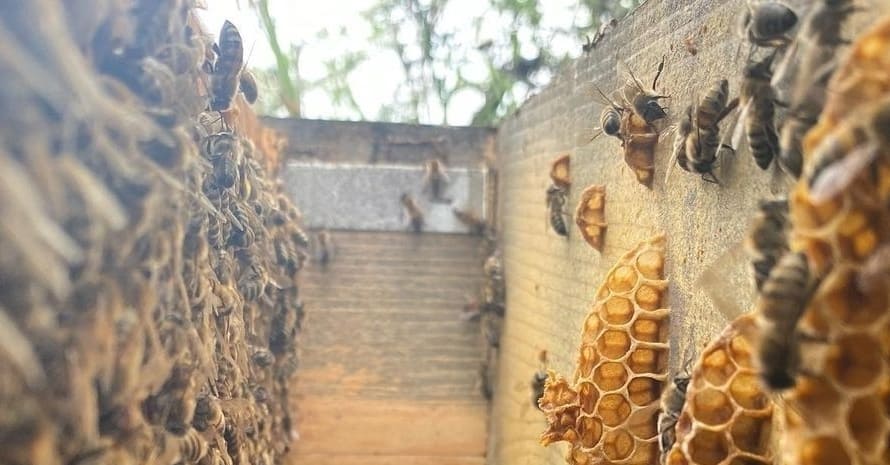The organized life of the honeybee has long fascinated those who have closely observed its life. Scientists, perhaps, have not found analogs in nature, having studied its biology in sufficient detail. One of the most interesting aspects of bee life is the construction of a honeycomb, which affects the development of the family during the year and its honey production.
Bees build honeycombs from the wax they excrete. The set of honeycombs on which bees are placed and in which their cells hatch brood and store honey and feathers is called an alley. The honeycomb may vary in size and shape but is always placed vertically. Between them is a space called the alley. The usual width of the nook is 0.5 inch.
Why do bees build cross combs?
Bees build cross combs if the space between frames is very large. This problem is often encountered with incorrect frame spacing in the hive. The optimal distance is 0.5 inch, but the temperature outside must be taken into account.
The distance between frames in the hive is one of the factors that determine how well the bees regulate the temperature within their hives. In general, the closer the frames are to each other the better as it makes it easier for the bees to regulate the temperature appropriately. In this article, we will discuss the distance between frames in the hive so you can decide for yourself whether or not this is a factor that affects the health of your honey bees.
It is a well-known fact: in a cold season, it is better than the width of the alley was 0.3 inch. With narrower bays, it is easier for the bees to maintain the temperature of the nest at this time, and they produce more brood. When warm weather arrives, the frames are moved back to a 0.5 inch bract. In the past, many beekeepers used this technique because all the frames were without permanent dividers. This cannot be done now in most cases, as almost all frames have permanent dividers.
A space of 0.5 inch should be left between the frames; otherwise, bees will either gnaw some of the cells or build them back up. The space between two adjacent honeycombs is used by bees for passage and is called an alley. The width of the alley is usually 0.5 inch. At this distance, the bees can work on both sides of the honeycomb without interfering with each other.

In the upper part of the honeycomb, where honey is folded, the walls of the cells are lengthened by the bees. As a result, the alley in this place is reduced to 0.2 inch (for the passage of one bee), and the depth of cells (filled with honey and sealed) increases to 0.6 inch; the total thickness of the honeycomb increases in this case to 1.1 inch.
If the frames in the nest are spread apart, the bees, to maintain the width of the nest, superimpose the cells in height.
How to fix a cross comb?
The best idea is to prevent cross combs by properly organizing the hive.
If the bees do build a comb between frames, gently break the cross comb on all sides of the frame. Try to make as few cuts as possible. Then gently push the original comb up against its frame. You can use ties or rubber bands to secure the comb.
Pick up the pieces that have broken off.
What is a cross comb?
A cross comb is a type of comb that bees build if the distance between frames is very large.
This problem often occurs when the hive is not properly planned, making it impossible for the bees to rearrange the frames in the hive without too much effort and unnecessary disturbance. Bees never build cross combs in the wild.
How do I prevent cross combs?
To prevent bees from building cross combs, you should not leave more than 0.5 inch space between frames.
